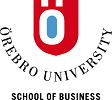No 2021:16: AI-enabled Automation, Trade, and the Future of Engineering Services
Franziska Klügl () and Hildegunn Kyvik Nordås ()
Additional contact information
Franziska Klügl: Örebro University School of Business, Postal: Örebro University, School of Business, SE - 701 82 ÖREBRO, Sweden
Hildegunn Kyvik Nordås: Örebro University School of Business, Postal: Örebro University, School of Business, SE - 701 82 ÖREBRO, Sweden
Abstract: This paper studies the role of trade for the joint uptake of AI-enabled automation in manufacturing and engineering. It develops an agent-based model (ABM) where the agents are heterogeneous manufacturers and engineering firms. The model features two technology-related business models: engineering as a face-to-face consultancy service and engineering as automated software. Switching to the software technology is costly for both manufacturers and engineers, but the cost declines with the number of firms having made the leap due to network effects. The simulations start with a scenario where all firms are in the consultancy business model and trace out the path of software adoption over time. The software adoption rate follows an S-shaped curve for manufacturers and a boom and bust cycle for engineers. Trade affects the cut-off productivity rate at which manufacturers switch technology, the shape of the adoption rate curve, and the incentives for engineers to develop software. In a two-country model with a high and low-wage country, the low wage country adopts software early and import consultancy services from the high-wage country, a pattern similar to China’s trade and AI development.
Keywords: Technology adoption; Automation; Trade; Agent Based Modelling
Language: English
32 pages, December 23, 2021
Full text files
wp-16-2021.pdfFull text
Questions (including download problems) about the papers in this series should be directed to ()
Report other problems with accessing this service to Sune Karlsson ().
RePEc:hhs:oruesi:2021_016This page generated on 2026-01-16 04:38:50.

